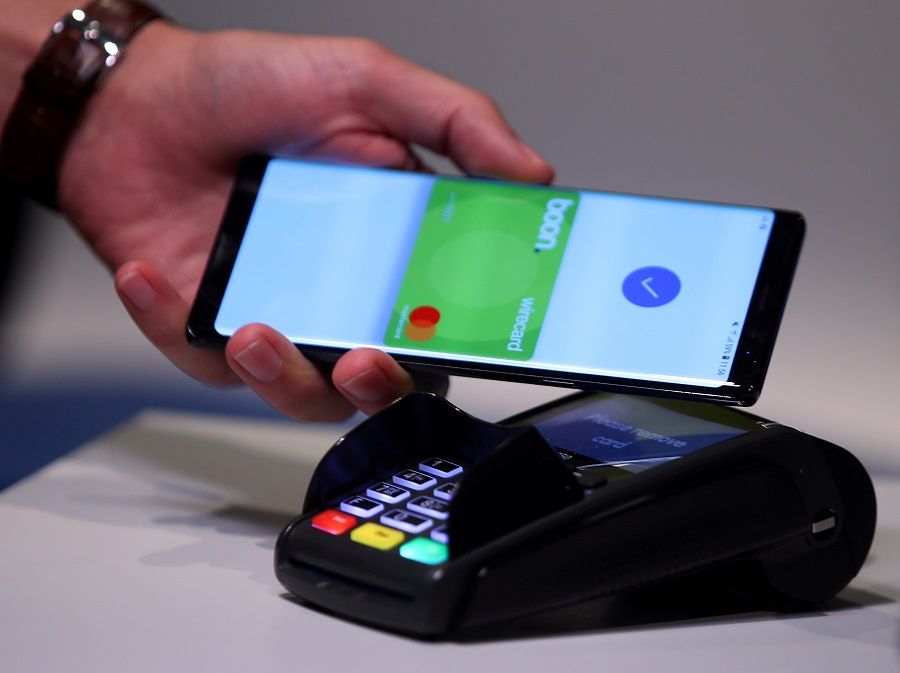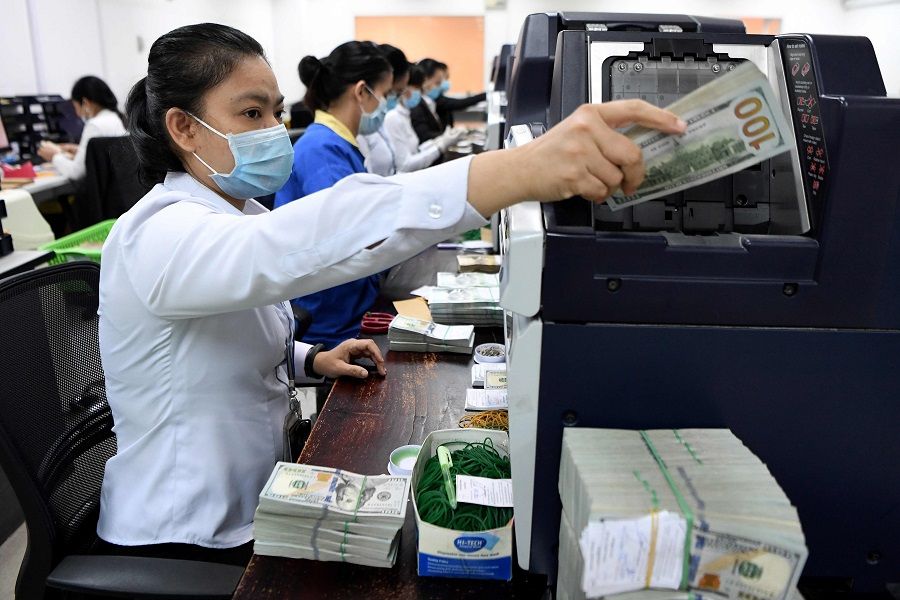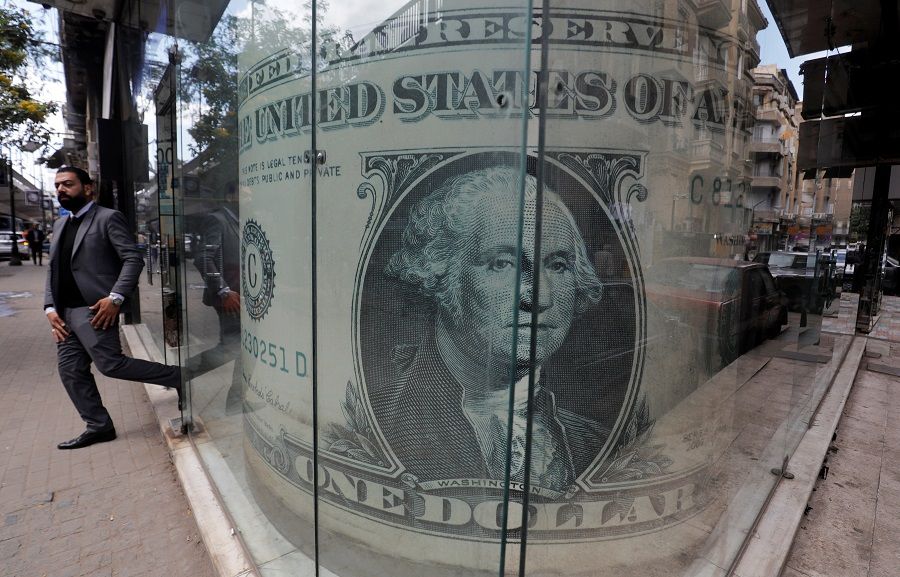As China's digital currency moves ahead, can Facebook's Libra match up?

In late April, the People's Bank of China (PBOC) started a pilot test of the digital RMB in Shenzhen, Suzhou, Chengdu and Xiong'an New Area, and thus China became the first major economy to roll out a central bank digital currency (CBDC).
Digital currency is money that exists in electronic form. While deposits in commercial banks are also digital, they are a liability of the bank. In contrast, China's CBDC is a liability of the state.
China had already become a global leader in e-payments with its market surpassing those of the US, the UK, Japan, and Germany combined. Notably, the world's largest FinTech company Ant Financial - the China-based company behind mobile payment app Alipay - is valued at US$150 billion. Remarkably, the capitalisation of this private company is roughly equal to those of Citigroup and Goldman Sachs combined. Additionally, the launch of the digital RMB aims to further cement China's leadership in e-payments.

Domestic impact
A recent report from the Bank for International Settlements mentioned "scalability, accessibility, convenience, resilience, and privacy" as desirable features that a CBDC needs. The challenge, the report argued, is to "design a CBDC that combines the virtues of a direct claim on the central bank with the convenience offered by intermediaries".
Even though this may facilitate the fight against money laundering and terrorist financing, tracing may also enable the close surveillance of cash flow movements in the economy and invade people's privacy.
Notably, the PBOC created a two-tier system whereby it creates the digital currency and passes it on to China's large financial institutions and largest state-owned banks which are supposed to further distribute it to the retail population. As the digital RMB will be used for settlement of transactions, it may increase the transparency of the Chinese banking system and create more stability.
On the other hand, CBDC enables the PBOC to trace transactions. Even though this may facilitate the fight against money laundering and terrorist financing, tracing may also enable the close surveillance of cash flow movements in the economy and invade people's privacy. While the PBOC has promised to balance concerns about privacy against the objective of halting illicit transactions, it remains unclear how it can achieve balance between these opposing objectives.

International impact
The launch of the digital RMB may signal China's ambition to unsettle the global monetary system. China is already ahead of the US in the digital payments market and one can argue that digital RMB may pose a distant threat to the dollar's supremacy as an international means of payment.
Even though nearly 90% of international transactions were settled in US dollars in 2019, whereas RMB controlled only 2% of the market, a Foreign Affairs article by the executive director and co-director of the Belfer Center, Harvard Kennedy School notes that "the failure to check the influence of China's digital RMB and develop a competitive American alternative could significantly hinder the United States' global influence in the information age".
...the digital RMB may weaken the power of US sanctions and its ability to track illicit financial flows.
Current sentiment in China may give credence to this theory. Recently, a former Bank of China president, Li Lihui, delivered a talk, opining how China's digital currency may restructure the global monetary system. Furthermore, a recent opinion piece in China Daily by Daryl Guppy, an equities and derivatives trader and columnist, said: "A sovereign digital currency provides a functional alternative to the dollar settlement system and blunts the impact of any sanctions or threats of exclusion both at a country and company level."

Finally, most cross-border payments are facilitated by the Society for Worldwide Interbank Financial Telecommunication (S.W.I.F.T.) while a large fraction is routed through US banks. Even though S.W.I.F.T. is headquartered in Belgium, many argue that the US yields a disproportionate influence including the ability to exclude countries under sanctions from cross-border transactions. This implies that the digital RMB may weaken the power of US sanctions and its ability to track illicit financial flows.
How will the world react?
Zuckerberg tried to convince US lawmakers that the choice is not Libra versus no Libra, but rather Libra versus digital RMB.
Intuitively, the best response to the digital RMB would be the digital dollar. In that spirit, the early versions of the US stimulus bill included the development of a digital US dollar to provide payments to people and businesses hit by the economic downturn. According to the reports, the Fed was supposed to offer bank accounts to all Americans - FedAccounts - which would bypass commercial banks.
The digital dollar would likely combine the economic strength of the US dollar with the convenience of digital technology. It was unlikely that a new digital dollar would use blockchain, but, nevertheless, the idea was scrapped and did not make it to the final version of the stimulus bill. Moreover, while more than 50 central banks around the globe have been experimenting and researching digital currency space for years, the US Fed is lagging behind the rest.

While Libra, the digital currency proposed by Facebook, is facing a regulatory pushback and scrutiny in the US and is being reconfigured*, ironically, it may be America's second-best response to potential challenge to its global monetary dominance. In his testimony to US Congress, Mark Zuckerberg, the Facebook CEO noted that increased regulatory scrutiny over Libra impedes its development, which would benefit China that was working on a similar project. While being grilled in Congress, Zuckerberg tried to convince US lawmakers that the choice is not Libra versus no Libra, but rather Libra versus digital RMB.
...Carney suggested several possible replacements to the dollar, including a digital currency supported by an international coalition of central banks co-insuring each other.
In fact, Li Lihui spent half of his talk discussing Libra and described it as a "supranational digital currency". Even though the two currencies widely differ, Libra and CBDC may yet compete on the international scene.
Moreover, Mark Carney noted in a speech in August 2019 when he was still governor of the Bank of England that the US dollar has played a dominant role in the world order for much of the past century and discussed the need for a new international monetary and financial system.
While he opined that neither RMB nor Libra were in a position to take over from the dollar yet, Carney suggested several possible replacements to the dollar, including a digital currency supported by an international coalition of central banks co-insuring each other.
Its (CBDC's) early focus will likely be on ironing out the wrinkles in the domestic banking system before it makes a leap on the international scene.

Carney added that a "SHC [synthetic hegemonic currency] could dampen the domineering influence of the US dollar on global trade. If the share of trade invoiced in SHC were to rise, shocks in the US would have less potent spillovers through exchange rates..."
Notwithstanding all of the above, we should keep in mind that the deliberate process of developing China's CBDC lasted six years and its early focus will likely be on ironing out the wrinkles in the domestic banking system before it makes a leap on the international scene.
While digital RMB represents a major milestone and China may have the ambition to unsettle the global monetary system in the distant future, it seems that this process will be slow and deliberate. However, if digital RMB takes off sooner than expected, ironically, the best defence in preserving the dominance of the US dollar may be a dominant private cryptocurrency such as Libra as it was earlier envisioned or a multinational digital currency issued by a coalition of central banks.
Editor's note:
*Facebook and the non-profit Libra Association headquartered in Switzerland have been working towards launching a revolutionary cryptocurrency. In its revised Libra 2.0 proposal detailed in a white paper in April 2020, it said that single-currency stablecoins would be offered, in addition to the multi-currency coin, to allay concerns of the latter (≋LBR) "interfering with monetary sovereignty and monetary policy if the network reaches significant scale in a country (i.e., ≋LBR becomes a substitute for domestic currency)". Under this change, it said, ≋LBR will not be a separate digital asset from the single-currency stablecoins but simply a "digital composite of some of the single-currency stablecoins available on the Libra network". Single-currency stablecoin (e.g., ≋USD, ≋EUR, ≋GBP, etc.) will enable domestic transactions in a stablecoin denominated in its own currency, and each single-currency stablecoin will be "supported by a Reserve of cash or cash-equivalents and very short-term government securities denominated in that currency and issued by the home country of that currency".
According to the white paper, only a small number of single-currency stablecoins will be issued based on "the presence of highly liquid and safe government securities markets in the relevant currencies", and there are huge hurdles to cross to expand its reach. For countries that do not have a single-currency stablecoin on the Libra network, the association proposed the ≋LBR as a "neutral and low-volatility alternative" that could ensure access to the network. It says the ≋LBR could operate as a settlement coin in cross-border transactions, and could be converted into local currency through third-party financial service providers.
It was also announced in May 2020 that Singapore's Temasek Holdings has joined the Libra project as one of the new members of the Libra Association.
